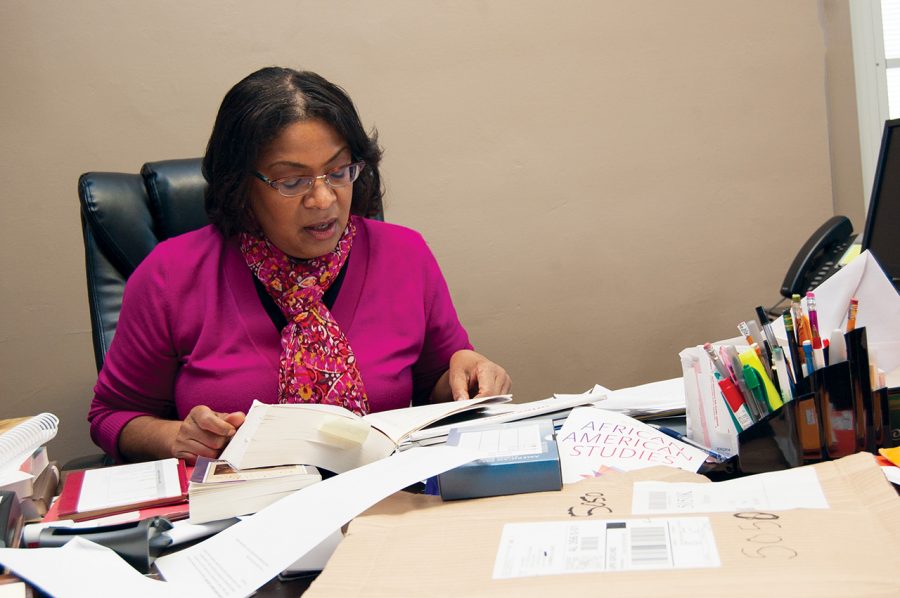Professors reflect on changes in African American history
February 20, 2014
When people think of Black History Month, pictures of groundbreaking African American heroes like Martin Luther King, Rosa Parks and Malcom X come to mind, consequently forcing the relevant thoughts and stories of ordinary people to become fading memories.
“I remember when the Black Student Alliance first started,” said Lisa Minor, professor of English. “One of the first things they did was start recognition of Black History Month on campus. I can recall being in meetings where they (faculty) just didn’t want to make it (Black History Month) something that was on the calendar.”
Throughout February, in celebration of Black History Month, the Communications Department will be presenting a guest speaker as well as screening several award-winning films by Ernest Gaines.
“With the Communications Department doing something and History Department doing something in recognition of Black History Month, that’s a real change from 25 years ago,” Minor said.
Black History month was created by Carter Woodson and first celebrated as a week in 1926, according to africanamericanhistorymonth.gov.
“Black history is great but a lot of times when we talk about Dr. Martin Luther King and we talk about Rosa Parks and W.E.B. Dubois and Booker T. Washington the kids today can’t relate,” said Latasha Howell, professor of English.
To provide students with a face-to-face interaction with contemporary mentors, Howell started a mentoring program for young people and is a youth leader within her church.
“They (kids) can’t meet them (historical figures), they can’t talk to them and they just can’t relate,” Howell said. “So I feel like sometimes we all need real-life examples.”
Black History Month is
supposed to be a time to recognize historic African Americans, Howell said.
“Most of the time we focus only on the past,” Howell said. “It’s a time to recognize, remember even though it’s just one month.”
Shortly after Black History Month was created many teachers began demanding black history materials to instruct their students with, according to africanamericanhistorymonth.gov.
“In my lifetime, childhood to now, black history was overlooked in the textbooks,” Minor said. “For literature when I was a student here we didn’t get to any black writers until the 1920s Harlem Renaissance. They (professors) left out slave narratives, Phyllis Wheatley, all of these writers that I had no idea wrote, (we were taught) as if Langston Hughes was the first black writer and that’s so wrong.”
On Sept.10, 1963, then President John F. Kennedy, with the use of executive order 11118, gave orders to the Army National Guard to protect students in Alabama as they integrated public education, according to the American Presidency Project. (http://www.presidency.ucsb.edu/ws/?pid=59057)
“I remember my white teacher asking all the other students where their relatives came from and they all acted like they came over on the Mayflower, Scotland, Italy — and there I sat from slaves,” Minor said.
Minor has been teaching at UNA since 1988.
“One year, in April, there was a poster in the history department recognizing Confederate History Month and nothing had been said about Black History Month, so it is heartwarming to now see different departments recognizing black history month,” Minor said.
After years of celebrating and teaching black history one question is whether or not we should change the way we teach it.
“I think maybe we should work it more into our curriculums in our schools to focus on it not just one month but all people and all achievements for the whole year,” Howell said.
Minor has a similar outlook on teaching black history.
“To me, black history is everybody’s history and in an ideal world people would accept that,” Minor said. “When you know your history it opens up the possibilities for you.”












